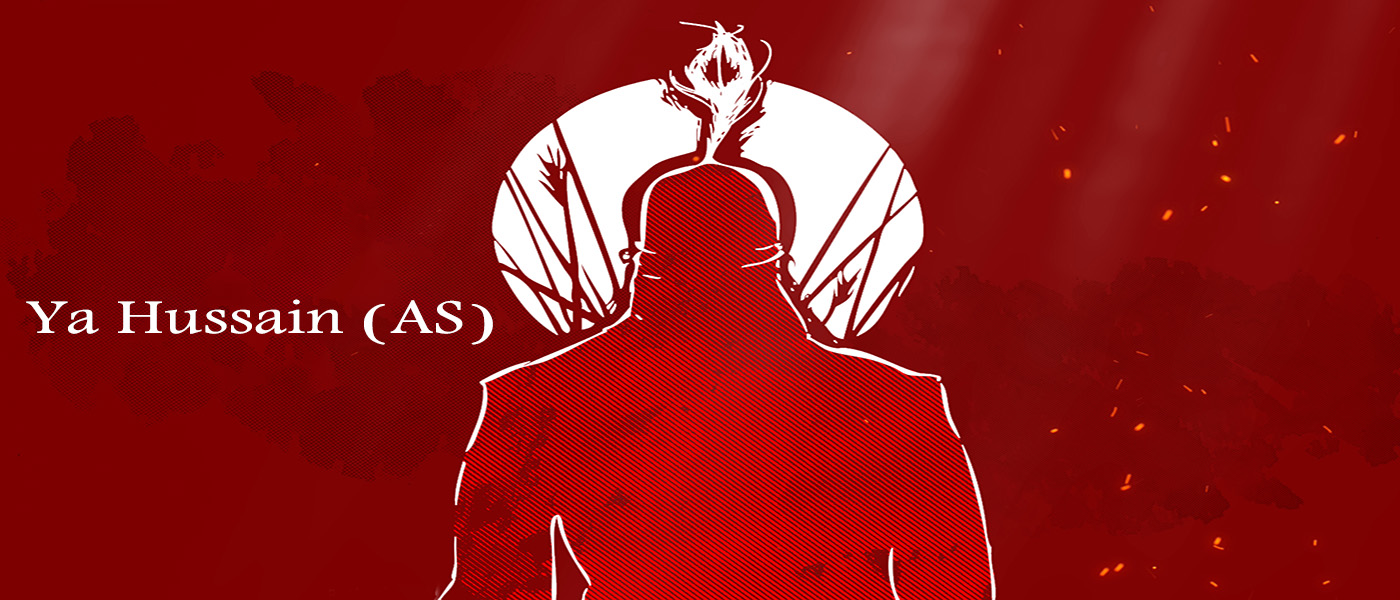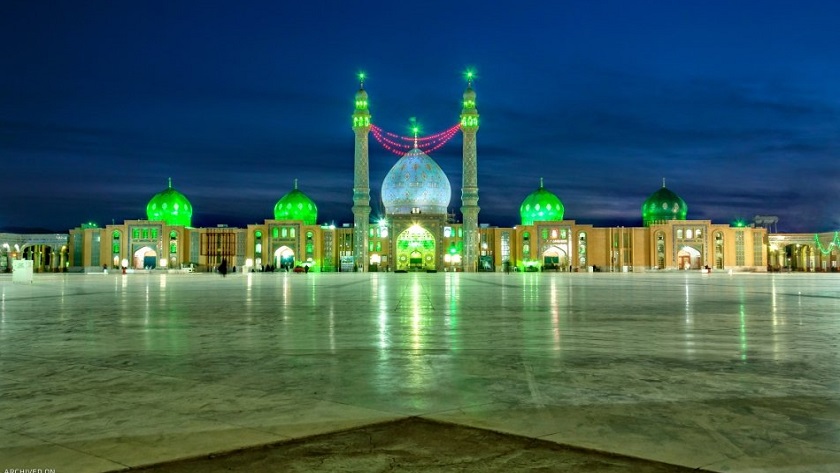

How Does Imam Hussain (AS) Teach Us Not to Surrender to Injustice?
Many of us experience situations in our daily life when we get oppressed by other people, or we witness an act of injustice. We might prefer to keep silent to prevent the probable consequences, not realizing that this may keep us away from immediate harm, but it will be followed by greater consequences and damages later on.
One may ask how keeping silent against oppression and injustice will harm us later on? And what would have happened if Imam Hussain (AS) paid allegiance to Yazid, instead of putting himself and his family in such a horrible situation?
This article tries to explain the importance of standing against oppression and injustice by learning lessons from Imam Hussain (AS)’s uprising.
What Were the Consequences of Paying Allegiance to Yazid?
As we know, Imam Hassan (AS) remained silent and signed a peace treaty with the ruler of his time, Muawiaya. The main reason was that although Muawiaya had started to bring some changes in some of the rules of Islam, he still preserved his Islamic attitudes in public. Therefore, being in peace with him did not lead to so much damage to religion. But his son Yazid had no intention even to present an Islamic behavior in the Islamic society. Yet, Muawiaya chose him as the ruler after himself.

If Imam Hussain (AS) kept silence and paid allegiance to Yazid, it would have meant that he approved of his behavior. As a result, all the rulings and laws of Islam that the Prophet (PBUH&HP) had suffered to teach people for a more prosperous life would gradually disappear over time.
How Did Imam Hussain (AS) React to Yazid?
As Yazid forced Imam Hussain (AS) to pay allegiance to him, he notified his reasons for which he could not accept Yazid’s ruling over the Islamic society. The most important reason was that he was not behaving as a Muslim and had stood up against Allah’s orders.
It is clearly mentioned in the Quran that it is prohibited for Muslims to accept the ruling of a non-Muslim or a non-believer:
“O! You who have faith! Do not take those who take your religion in derision and play, from among those who were given the Book before you, and the infidels, as friends, and be wary of Allah, should you be faithful.” (5: 57)
However, Imam Hussain (AS) did not mean to start a war, and therefore, he took his family and left Medina for Mecca. Yazid knew that Imam had a significant impact on Muslims’ decisions and was afraid that Imam’s decision would spread among the Muslims and lead to their uprising against him. Thus, he sent his people to bring the Imam (AS) and to take his allegiance.
Imam left Medina for Kufah and then to Karbala. He was surrounded by the massive army of Yazid and had to choose. Should he have paid allegiance by force and teach a lesson to people that all he did to stand against oppression and injustice was wrong? Or should he have done what he did?
Imam Hussain (AS)’s Choice
Based on his ideology and belief, and the teachings of the Prophet (PBUH&HP) that he had grown up with, Imam Hussain (AS) chose never to surrender against the injustice acts of Yazid. He, therefore, did not give up his duty to stand against injustice and along with his companions and sons, defended his household until they were all martyred.
The beauty and magnificence of his free spirit and his uprising started to spread throughout the world after his martyrdom.
He reached his goal to conserve the true religion of Islam and the pathway to prosperity by unveiling the real character and aims of those who desired to rule over the nation.

His Impact on the World
After the event of Karbala, his message on ‘standing against injustice and being free-spirited’ spread all over the world. He became a symbol for all those who care about their spirit, don’t want to accept oppression, tyranny, and injustice for the sake of their benefits in the short life of this world; people like Gandhi, the great leader of India.
Conclusion
From Imam Hussain's (AS) lifestyle, we learn that neglecting some mistakes may bring significant harm to society and, consequently, to our lives. Therefore, we should be wise and realize in our daily life to speak justice where oppression is taking place. That might be in our relations with our family members, our colleagues, or on a larger scale with those in power.
“Prophets and Imams (PBUT) are vivid examples and leaders that true believers should practically follow and not just worship. The example of Imam Hussain (AS) teaches us the lesson of standing against tyranny and injustice, the movement of honorable believers who preferred martyrdom to humiliation, and who have shown us what it means not to surrender.” [1]
References
Share This Article

Our responsibilities toward Imam Mahdi (AS)
Imam Mahdi (AS) is the last and the twelfth Imam of the Shiite Muslims. He was born in 255 H (874 AC) and the Shiite Muslims believe that their last Imam has been alive for approximately 1150 years. According to Shiite narrations, Imam Mahdi (AS) is currently in occultation and hidden from the public.
In this regard, Imam Kazim (AS) says:
After that, the narrator of this hadith asks the Imam: “Is there going to be a hidden Imam?” Imam Kazim (AS) replied:
Yes! He will be hidden from the eyes of the people but the hearts of the faithful will not forget him. (1)
Despite Imam Mahdi (AS) being in occultation, we have responsibilities and duties to fulfill during this period. His hidden state doesn’t imply that Shiite Muslims have nothing to do for their faith and religion.
In fact, the best way to maintain a strong connection with our Imam is by following his orders. The Shiite Imams have told us about the responsibilities we have during this special time and some of them are mentioned below:
Upholding our faith
During the occultation of the Imam, it is a time when people may lose faith in him. In this regard, Imam Sadiq (AS) said:
With Mahdi (AS), there will be a little number of Arabs.
Then the Imam was told “But there are so many Arabs now that have faith in this religion!” Imam Sadiq (AS) replied:
People will inevitably be tested and they will be differentiated from one another and many will fail this test. (2)
The Holy Prophet (PBUH & HP) once prayed:
O Allah! Show me my brothers, Show me my brothers.
The people around him asked “O Messenger of Allah! Aren’t we your brothers?”
He responded:
No! you are my companions. But my real brothers are those who live in the last times of this world. They believe in me while they haven’t seen me … keeping faith in those times, will be more difficult than cutting the thorns of a plant on a dark night or holding a burning wood in one’s hands. They are the lights in the darkness and Allah will save them from every catastrophic test of seduction. (3)
As you see, being a faithful person is easy during the occultation. Therefore, one of our responsibilities is to keep our belief in Islam during these times.
Harith ibn Muqhairah (one of the followers of Imam Sadiq (AS)) says “Once I told Imam Sadiq (AS): ‘We are being told that the leader of this religion will be hidden one day. So, in those times, what should we do?’”
Imam Sadiq (AS) said:
Keep your very faith that you have now and do as you have been ordered before him, until the time that everything will be clear for you [the arrival of Imam Mahdi (AS)].(4)

Getting to know Imam Mahdi (AS) more
Understanding the message of our Imams and having knowledge about their attributes and role in this world is crucial in the Shiite view. This is one of the most significant duties of Shias during the occultation. In this regard Imam Sadiq (AS) advises one of his pupils named Fozail:
O Fozail! Get to know your Imam because if you know him, it will be the same for youwhether his arrival is soon or delayed and anyone who knows their Imam and then dies before his arrival is like one of his soldiers. (5)
Praying
In the Islamic point of view, praying is one of the most effective ways to have our wishes fulfilled. We should call upon Allah when we need Him and ask him to solve our problems, trusting that He will answer our prayers. The holy Prophet (PBUH & HP) said:
Call upon Allah while being certain that He will answer. (6)
Living without a guide in this world is the most significant problem we have. Without our Imams, we Shias have no savor and our problems seem never-ending. In this regard, Imam Sadiq (AS) says:
The problems of the Earth will not be finished except by an Imam. (7)
Therefore, one of the most important prayers we should make is for the return of Imam Mahdi (AS). The Shiite Imams have persuaded their followers to pray for the arrival of Imam Mahdi (AS).
Imam Sadiq (AS) told one of his pupils named Humran about the attributes of the occultation time and advised him:
When you saw … that the world is highly favorable for the unfaithful people and the flag of the righteous people is hidden, be cautious and ask Allah to save you. (8)
Imam Sadiq (AS) also said:
You Shias will face doubts in the future and [during those times] you won’t see a right flag or a guiding Imam and no one will be saved in those times except for the ones who pray like a drowning person.
Then the narrator of the hadith asks the Imam: “How can I pray like a drowning person?”
Imam Sadiq (AS) replied:
You should say:
“یا اللّه یا رحمن یا رحیم یا مقلب القلوب ثبت قلوبنا علی دینک”
O Allah! O Rahman! O Rahim! O Controller of the hearts! Make my heart keep its faith in your religion. (9)
Imam Mahdi (AS) himself wrote to one of his followers:
Pray so much to Allah for my arrival because it resolves all your problems (10)
In addition to this fact that praying makes his arrival more likely to happen sooner, praying is also the best way to relate to Imam Mahdi (AS) and this way, we can make a good connection to him. In return, Imam Mahdi (AS) sees that you are always thinking about him and praying for his arrival. It is obvious that Imam Mahdi (AS) loves the ones who do not forget him and pray for him more than others. Due to this fact, Imam Mahdi (AS) will pray for us in return and clearly, the praying of an Imam surely will be answered by Allah.
Don’t forget that it is so important for praying for the arrival Imam Mahdi (AS) to be in a group. You should get together with your family, friends or even the other people to pray for Imam Mahdi (AS).
Imam Sadiq (AS) said:
If four people gather and pray, they won’t leave each other until Allah answers their supplication (11)
He also said:
When something would bother my father (Imam Baqir), he would gather all the women and kids in the house and he would pray and they would say “Amen.” (12)
As you see, praying together as a group holds great important for it to be answered by Allah. Imagine the impact if all the Shiite Muslims united in praying for the arrival of Imam Mahdi (AS) pure hearts. It is obvious that his occultation wouldn’t have prolonged for so long. So, one of our important responsibilities toward Imam Mahdi (AS) is to encourage others to pray for his arrival and we’d better pray in group.
There are many other responsibilities we have during the occultation. The most important thing is to follow the orders of the previous Imams and fulfill all of our religious obligations so that Allah would save us from this dangerous time.
Resources
- Kamal ad-Din, Sheikh Saduq, vol.2, pg.369
- Al-Ghaybah, Sheikh an-No’mani, pg.204
- Basa’ir ad-Darajat, As-Saffar al-Qommi, pg.84
- Al-Ghaybah, Sheikh an-No’mani, pg.159
- Al-Ghaybah, Sheikh an-No’mani, pg.329
- Bihar al-Anvar, Allamah al-Majlesi, vol.90, pg.321
- Al-Kafi, Sheikh Koleini, vol.2, pg.21
- Al-Kafi, Sheikh Koleini, vol.8, pg.42
- Kamal ad-Din, Sheikh Saduq, vol.2, pg.352
- Al-Ih’tijaj, Sheikh at-Tabrasi, vol.2, pg.284
- Al-Kafi, Sheikh Koleini, vol.2, pg.487
- Al-Kafi, Sheikh Koleini, vol.2, pg.487
Read More

What Is the Islamic Attitude Towards Superstitions?
It might have happened to you that when there is a ladder leaned against a wall and as you want to pass under it, someone calls you and says: “Do not pass under a ladder!” You might think it's crazy, or you might find it acceptable and even follow it. Which one is true? If you decide to follow Islam as your faith, should you follow those superstitious beliefs or ignore them all at once?
What Is Superstition?
Collins Concise English Dictionary defines superstition as an irrational belief usually founded upon ignorance or fear and characterized by obsessive reverence for omens, charms, etc. [1]. Superstitious beliefs are not limited to a particular faith or region; all nations and clans have their own beliefs, followed by their fears and ignorance. They are mostly routed in the past of a nation, transferred from generation to generation.
Does Islam Say Anything about Superstitions?
Islam defines superstition as all the words, manners and beliefs without a religious or logical base and backbone [2].
The Quran defines superstition as a burden put upon the human mind and soul by his/her own hands. It introduces Prophet Muhammad (PBUH&HP) to us as the last messenger of Allah, responsible to make things clear for his followers to see what to do and believe in, and what not to do and ignore [3].
"Those who follow the Messenger, the unlettered prophet, whom they find written in what they have of the Torah and the Gospel, who enjoins upon them what is right and forbids them what is wrong and makes lawful for them the good things and prohibits for them the evil and relieves them of their burden and the shackles which were upon them. So they who have believed in him honored him, supported him and followed the light which was sent down with him - it is those who will be successful.” (7:157)
Shackles are those beliefs human beings had or might have, which made them do things and stop doing some others with no definite reason or scientific study and research. It is the duty of Islam to guide people to accept everything they believe in with their hearts and minds sure of it, which requires research and reasoning.
But What If I Still Want to Follow Superstitions in Which I Believe?
Well, there was a time when superstitions were limited to passing under a ladder or seeing a black cat. But now, superstitions are more woven in the lives of people. Reports have shown that a quarter of adults in the United States consider themselves to be so. American Youths are more superstitious than the elders, and 70 percent of them rely on luck charms for better academic results. According to some scientific research, this occurs because people think superstitions can relieve their anxieties, improve their performances and help them pay the extra costs of an adverse outcome, be it financial, mental, or whatsoever [4].
As you might also conclude, superstitions have not only been less common, but also they are becoming more frequent among young Americans. There are ways to overcome those beliefs which we are going to discuss in our next article. Still, aside from that, these words uncover one fact: when you follow superstitions and believe in them, they will take the lead in your life and the life of your children, family, friends, etc. One day you might come up with the fact that many of your friends' fears passing under a ladder, too.
The other outcome of following superstitious beliefs is a weaker mental belief in a superpower. Put simply, when you believe in superstitions, you see other powers, be it of Satan, natural elements, or any other thing, stronger and more effective than that of Allah. You might not mean or think that way, but being superstitious makes you so.
One last important aftermath of this system of thinking is a feeble religious mind, one which is easily broken, misled, and gone far away from the straightway of truth. Superstitions weaken your faith, and then they weaken you. A weak person goes forward with a slow speed.
These are the least consequences of superstitious beliefs. You might think about the ways of overcoming these thoughts and getting rid of them which we will discuss later.
So, Are you still afraid of passing under a ladder?
References
- Collins Concise English Dictionary at Word Reference Online Language dictionaries
- Mokhtaripour, Marziyeh Islam, Superstitions and their Prevention Pasdar Islam, Vol. 385
- Makarim Shirazi, Nemuneh Interpretation of Quran, Vol 1, P 184
- Sandoiu, Ana How do Superstitions affect our Psychology and Wellbeing September 2019
Read More

